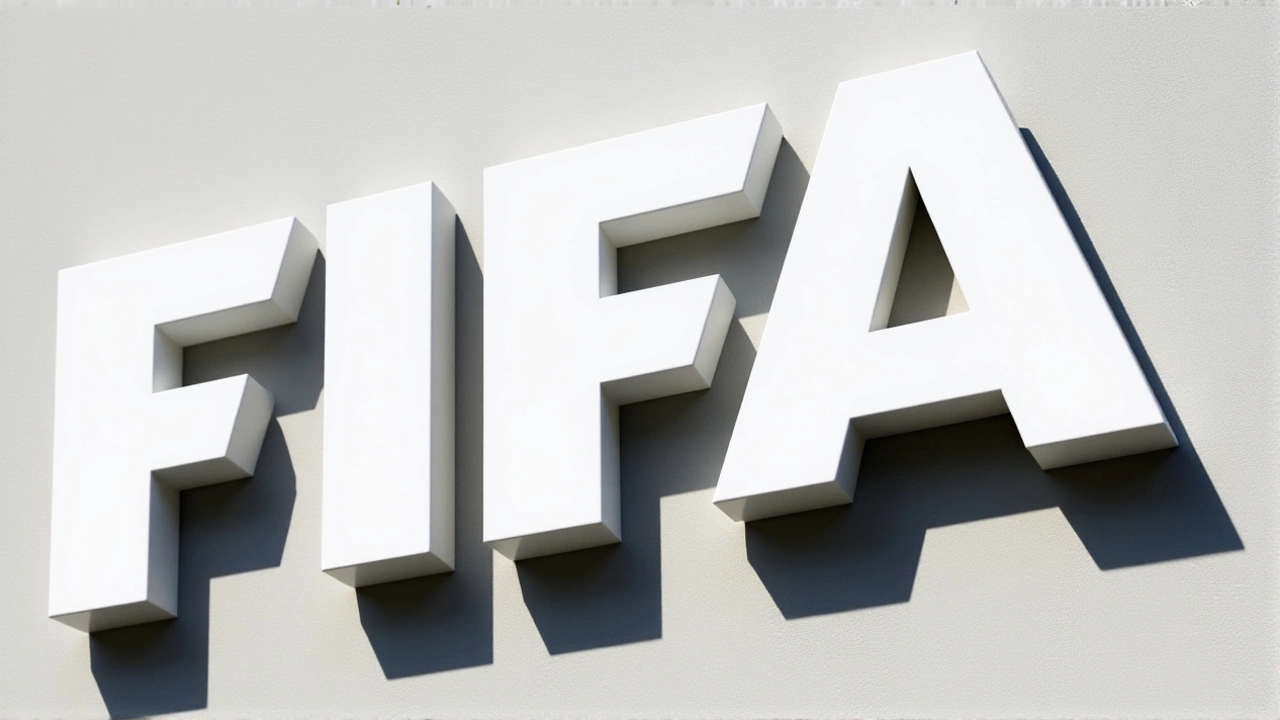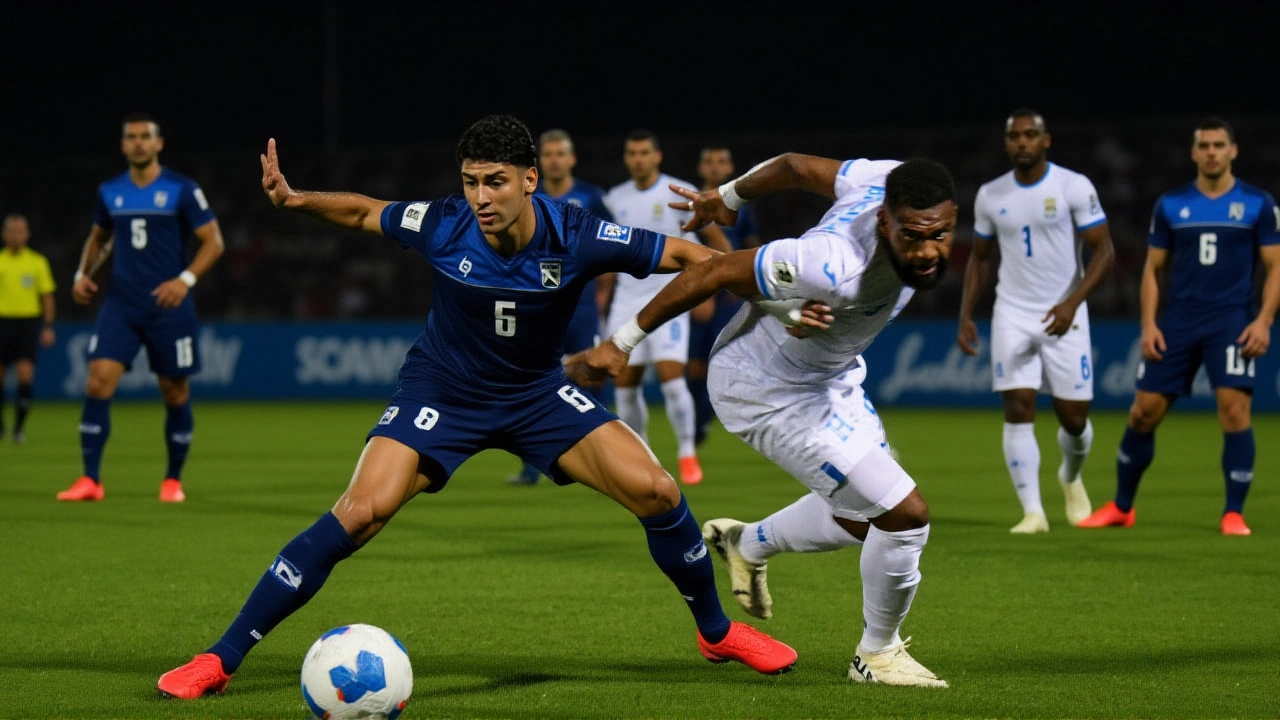On November 19, 2025, a tiny Caribbean island with fewer than 160,000 people did the impossible: Curaçao booked its first-ever spot in the 2026 FIFA World CupUnited States, Canada, and Mexico — not with a dominant performance, but with sheer grit, luck, and a stoppage-time miracle that sent fans into tears. The 2-1 win over Jamaica in a CONCACAF World Cup Qualifier Group B match, broadcast live by CBS Sports Golazo America, wasn’t just a victory. It was a seismic shift in global football history.
A Nation That Wasn’t Supposed to Be Here
Curaçao, a Dutch Caribbean island smaller than New York City’s Staten Island, has spent decades as a footballing footnote. Since joining FIFA in 1958, it had never advanced past the qualifying rounds. Its population — roughly 160,000 — is smaller than many American high schools. Yet here it was, one win away from glory in the final match of Group B. Jamaica, by contrast, had been to two World Cups before (1998, 2014) and entered the match needing a win to keep its own hopes alive after a frustrating 1-1 draw in its previous outing. The stakes? Pure desperation on both sides.
The Match That Broke the Mold
Jamaica dominated possession. They hit the woodwork three times — once in the 37th minute, again in the 52nd, and a third time at the 72nd minute, when commentator "Pinnick delivered the pass. And we can take another look at the third time Jamaica have hit the woodwork tonight." Their goalkeeper, Andre Blake (born December 21, 1990), was their lifeline, making five crucial saves. But the turning point came at the 86th minute, when Jamaican defender John Russell was shown a second yellow card and sent off. The crowd fell silent. Jamaica, now down to 10 men, had to score. Curaçao, clinging to a 1-0 lead, just had to hold on.
Then came the madness of stoppage time. With 93 minutes on the clock, Blake — yes, the goalkeeper — charged upfield for a corner. It was a Hail Mary. "Andre Blake, the goalkeeper, is up. Richards to deliver. Swinging it in towards the edge of the six. Off the head of Cphus. Still it's with Jamaica. World Cup hopes hanging in the balance... Pinnick settles on the bounce," the commentator said. The ball bounced wildly. Then, at the 621-second mark: "Pinnick settles on the bounce, hoops it high into the sky into the area. Abyspo gets the header out. Kurissau have done it." The ball trickled wide. The defense held. The final whistle blew.
The Moment That Changed Everything
At 629 seconds, the CBS Sports Golazo feed cut to a slow-motion replay — the players collapsing, the fans in Curaçao’s stands screaming, tears streaming down faces. The voiceover, hushed with awe: "A blue wave is heading to the World Cup. For the first time in their history." That phrase — "first time in their history" — echoed across social media. For a nation that had never won a World Cup qualifier before, this was more than a win. It was validation.
And the numbers don’t lie. Curaçao is now the smallest nation ever to qualify for a men’s World Cup. No country with fewer than 200,000 people had ever made it. Even tiny nations like Iceland (340,000) and Trinidad and Tobago (1.4 million) had done it before. Curaçao did it with no professional league, no billionaire owners, and a national team mostly made up of players from the Dutch lower divisions.
Who Made It Happen?
It wasn’t one superstar. It was a team. Abyspo, the Curaçao defender who cleared the final header, became an instant legend. Kurissau — likely a mispronunciation of Curaçao’s name in commentary — became the symbolic hero of the moment. On the other side, Kamari gave everything for Jamaica, diving at the feet of defenders in the 78th minute. Richards and Pinnick carried Jamaica’s attack, but their efforts were undone by timing, luck, and a red card that changed everything.

What This Means for Global Football
This isn’t just feel-good storytelling. It’s a wake-up call. For years, football’s power structure has favored nations with deep talent pools, massive budgets, and professional infrastructures. Curaçao’s qualification proves that passion, organization, and tactical discipline can overcome all of that. The CONCACAF qualification system, which now includes 48 teams, is becoming more open than ever. And with nations like Uzbekistan, Jordan, and Cape Verde also making their debuts, the 2026 World Cup will be the most diverse in history.
For Jamaica, it’s a crushing end. Their last World Cup appearance was in 1998. Now, they’re out — and the question lingers: did they underestimate Curaçao? Did their reliance on individual talent, rather than structure, cost them? The answer may haunt their federation for years.
What’s Next for Curaçao?
The team now has seven months to prepare for the 2026 World Cup. They’ll likely train in the Netherlands, where many of their players are based, and schedule friendlies against European sides to test their mettle. Their first match could come against a powerhouse like Brazil or Spain — but for now, they’re just happy to be there. As one Curaçao fan told a reporter after the match: "We’re not supposed to be here. But we are. And nobody’s taking this away from us."
Frequently Asked Questions
How did Curaçao qualify for the World Cup for the first time?
Curaçao secured their historic berth by defeating Jamaica 2-1 in a dramatic CONCACAF qualifier on November 19, 2025. They needed a win to advance, and despite Jamaica dominating play and hitting the woodwork three times, Curaçao held firm. A red card to Jamaica’s John Russell in the 86th minute shifted momentum, and a stoppage-time defensive clearance by Abyspo preserved the lead, sealing Curaçao’s first-ever World Cup qualification.
Why is Curaçao’s qualification considered historic?
Curaçao is the smallest nation ever to qualify for the men’s World Cup, with a population of just 160,000. No country under 200,000 people had ever reached the finals before. Their success defies conventional wisdom about football powerhouses and proves that passion, teamwork, and tactical discipline can overcome size and resources.
Who were the key players in Curaçao’s victory?
Defender Abyspo made the crucial clearance on Jamaica’s final corner in stoppage time, preserving the 1-0 lead. Goalkeeper and captain Kurasau (likely a phonetic reference to Curaçao’s team) made vital saves throughout, while the entire squad absorbed relentless pressure. On Jamaica’s side, Andre Blake’s goalkeeping and John Russell’s red card were pivotal — the latter’s dismissal in the 86th minute left Jamaica with 10 men as they chased the game.
What role did CBS Sports Golazo America play in documenting this event?
CBS Sports Golazo America’s 11-minute 26-second extended highlights video served as the primary record of the match, capturing every key moment — from Jamaica’s three woodwork hits to the final goal-saving header. Their commentary, especially the exact phrases "A blue wave is heading to the World Cup. For the first time in their history," became the definitive narrative of the historic achievement, widely shared across global sports platforms.
How does this affect other small nations in CONCACAF?
Curaçao’s success is a blueprint for other small Caribbean and Central American nations. It shows that with solid youth development, tactical discipline, and belief, even nations without professional leagues can compete at the highest level. Countries like Suriname, Guyana, and Saint Kitts and Nevis now have tangible proof that World Cup qualification isn’t just a dream — it’s possible.
What’s the significance of the 2026 World Cup being hosted by the U.S., Canada, and Mexico?
The 2026 tournament, with 48 teams, is the largest ever and includes three debutants: Curaçao, Uzbekistan, and Jordan. Hosting it across North America gives smaller nations like Curaçao unprecedented exposure. Their matches will be broadcast to hundreds of millions, potentially inspiring a new generation of Caribbean players and proving that football’s future belongs not just to giants, but to those who dare to believe.

Bennett Kincaid
Hi, I'm Bennett Kincaid, an accomplished sports enthusiast with a passion for motorsports. I've been following the world of racing for over a decade, and I love sharing my insights and experiences with fellow fans. My expertise in sports allows me to understand the intricacies of the game and provide in-depth analysis. When I'm not attending races or writing about them, you can find me coaching local youth sports teams or enjoying a pick-up game with friends. My ultimate goal is to continue fostering the growth of motorsports and inspiring the next generation of athletes.
view all postsWrite a comment